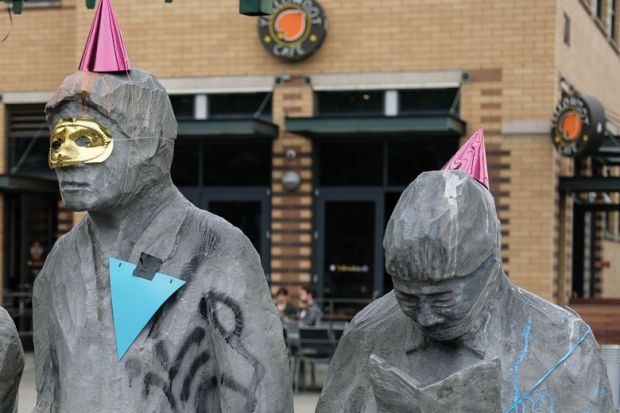Australia should acknowledge that it is refusing to accept some doctoral students rather than letting them apply and then leaving them in limbo, according to an immigration expert.
Abul Rizvi, a former deputy secretary of the immigration department, blamed security concerns for interminable delays in the processing of visa applications from Chinese, Iranian and Pakistani doctoral candidates.
Dr Rizvi said officials resisted granting visas to PhD-level science, technology, engineering and mathematics (STEM) students from these countries without security agencies’ approval. Security checks proved extremely time-consuming because of their uncooperative governments.
But if Canberra’s response was to put the visa applications in the too-hard basket, “it should be open about it”, he said. “The more honest thing would be to say, we are not going to accept STEM postgraduate students from [places such as] Iran because the security issues are too difficult.”
Department of Home Affairs data show that half the 119 postgraduate research students who were granted visas between April and June this year had waited eight months or more. The data do not reveal the delays endured by people whose applications were yet to be processed, but some universities keep these figures.
UNSW Sydney said that of almost 140 applicants awaiting visas to join it for postgraduate research study, seven had been waiting at least 600 days. One had applied more than 830 days ago.
Deputy vice-chancellor Nick Fisk said that another applicant had been granted a visa after 736 days, but visas were rarely declined after such lengthy delays. Instead, the applications were simply not processed. “They just get left in limbo,” he said.
Monash University said that 14 prospective PhD students had been waiting more than 500 days for visas, including eight who had waited more than 600 days. The University of Technology Sydney (UTS) said about 25 applicants had been waiting at least a year.
The UK government claims to process most offshore student visa applications within three weeks. UTS Graduate Research School dean Lori Lockyer said that Australia’s delays affected local academics as well as foreign applicants.
“The supervisors are deliberately choosing the students because of what they can bring to their research programmes and labs. We’re not the only place the students can go,” she said.
UTS deputy vice-chancellor Iain Watt said the students did not necessarily target Australia. “They choose the supervisor and the research team they want to be part of. Everybody’s losing here. The research teams lose. The students lose. The university loses. The country loses.”
Home Affairs data show that the grant rate – the proportion of applications that were processed and approved – climbed to 100 per cent in the June quarter. The department says that Covid-19 has disrupted visa processing and recent data are not “indicative” of normal practice.
However, many of these applications were lodged well before the pandemic and some appear to have reached the front of the processing queue because the department had fewer other applications to consider. Dr Rizvi speculated that the department had told staff to “hurry up” after visa processing had all but stopped from March to May.
He said that applications raising security concerns would continue to be sidelined, as officials focused on the low-hanging fruit. “The only way you can process applications really quickly is if you say ‘yes’ – it takes a lot more time to say ‘no’.”





